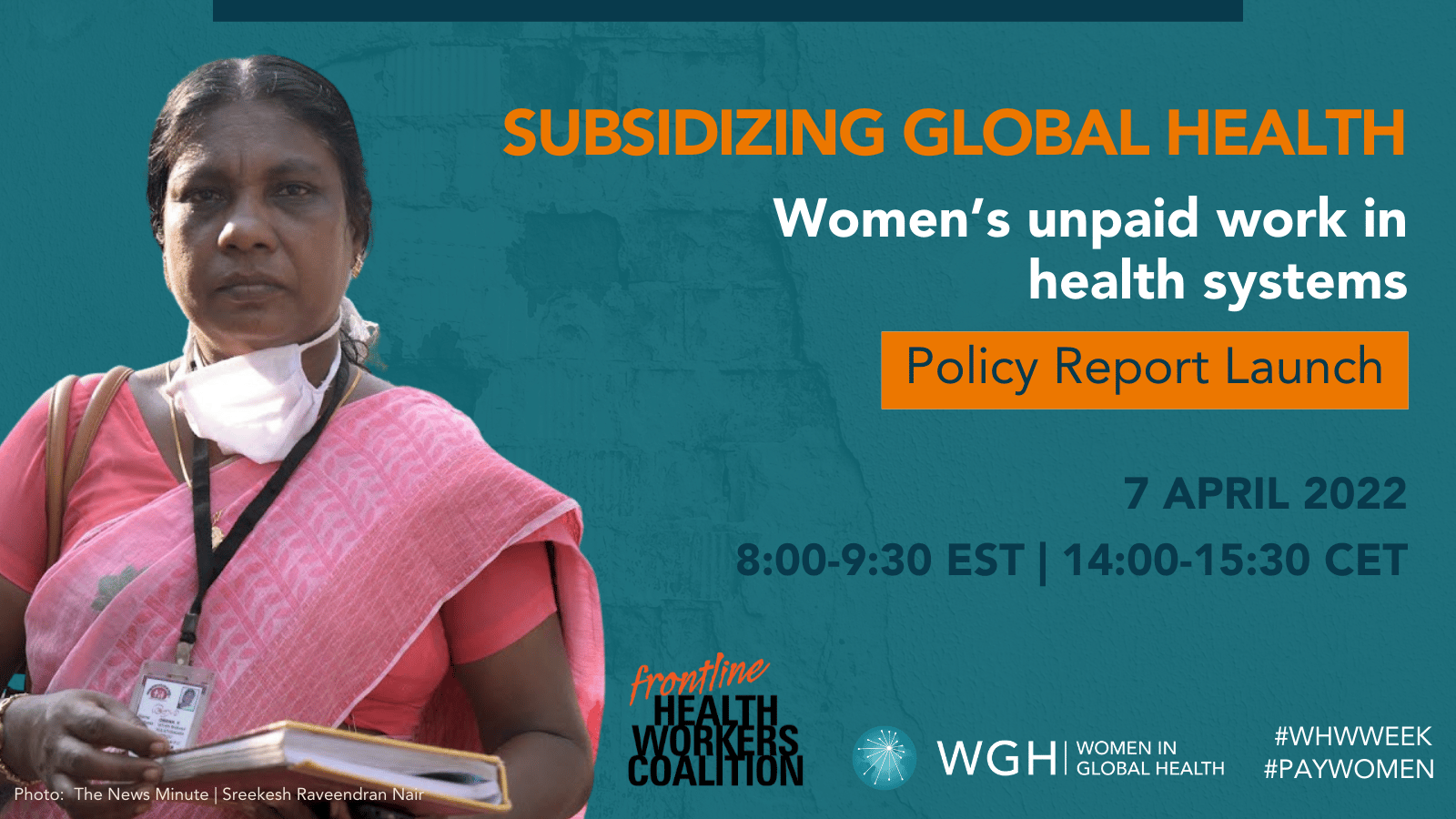
- This event has passed.
Subsidizing global health: Women’s unpaid work in health systems
April 7, 2022

Women have played a critical role in the COVID-19 pandemic at all levels from political leadership to vaccine design. In addition, women make up 70% of the health and care workforce and 90% of frontline and patient-facing roles. In the first year of the pandemic health workers, the majority women, were applauded as ‘angels’ and heroes’ as they grappled with surging patient numbers, unprotected by vaccines and in many contexts, with inadequate Personal Protective Equipment (PPE). Women also faced an increased burden of unpaid care work at home and in the community. COVID-19 has shown the fragility of health systems caused by these structural gender inequalities. In 2020 health workers in over 80 countries went on strike for better pay, conditions and safer work. Despite being the majority in the profession, women in the health sector are paid 23% less than their male counterparts (Gender Pay Gap) and millions of women are working unpaid or grossly underpaid in core health systems roles. It is estimated that women in health contribute 5% to global gross domestic product (GDP) (US$ 3 trillion), out of which almost 50% is unrecognized and unpaid. Women’s unpaid work at community level has had major positive health outcomes for communities, as confirmed by the unpaid work women have done in the pandemic tracing positive cases, promoting public health measures and delivering vaccines. It is unacceptable that this valuable work appears to have no economic value. Some of the world’s poorest women take on this work in addition to their already heavy load of domestic and subsistence work, leading to low morale, poor retention of trained staff, acute staff shortages, and a heavy workload for remaining staff. Against this backdrop, Women in Global Health, in collaboration with the Frontline Health Worker Coalition held an event to launch WGH’s latest policy report, Subsidizing global health: Women’s unpaid work in health systems (#PayWomen). Speakers: -Ms. Desta Lakew, Amref Africa -Dr. Magda Robalo, Managing Director, Women in Global Health -Ms. Ann Keeling, Senior Fellow, Women in Global Health -Ms. Linda Etim, Special Assistant to the President and NSC Senior Director for Development, Global Health, and Humanitarian Response, USAID -Ms. Euniter Adoyo, Community Health Worker, Kenya -Dr. Svea Closser, Johns Hopkins University -Ms. Sandra Massiah, Public Services International -Ms. Bhanupriya Rao, Behanbox India